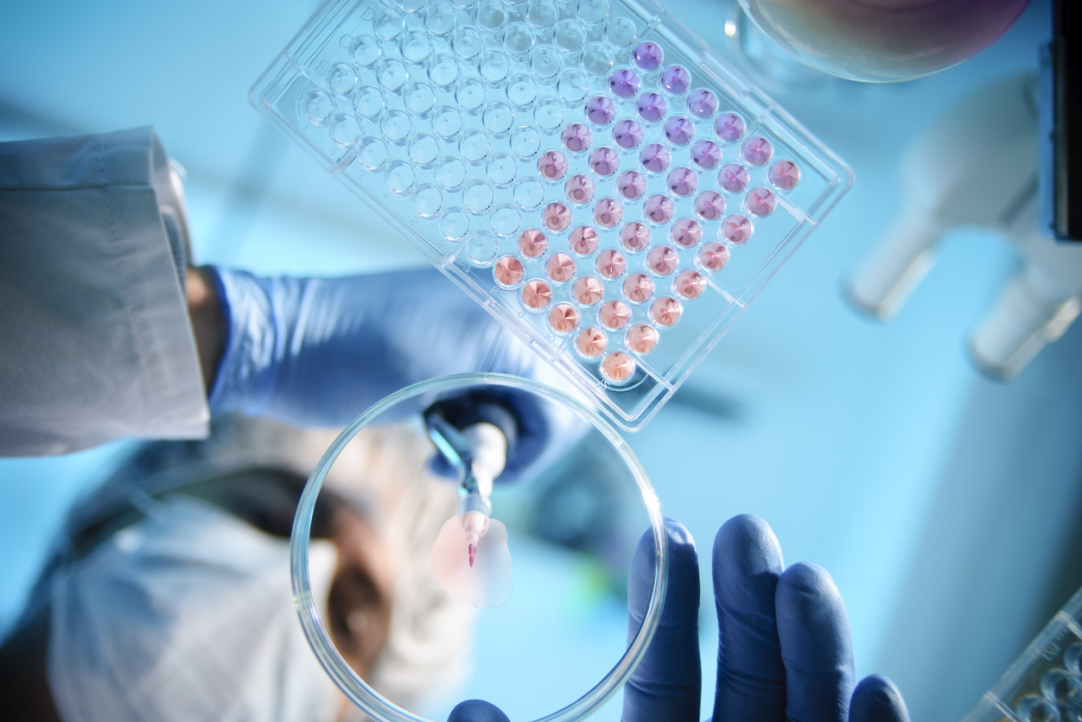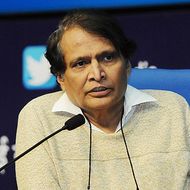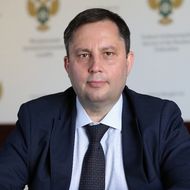‘Fine-Tuning the Molecule’: Prospects for Biosimilar Market in BRICS Space

The market for biological products and their analogues is one of the most promising in the pharmaceutical industry. BRICS countries currently have great opportunities to develop this segment. The International BRICS Competition Law and Policy Centre at HSE University, together with the Institute of Chemical Technology, Mumbai, held a meeting of the BRICS Working Group for the Research of Competition Issues in Pharmaceutical Markets.
The event was held as part of the BioPharma track of the international exhibition ChemTECH World Expo 2024, one of the largest industry exhibitions in Asia. The discussion was organised with the participation of Russia’s Federal Antimonopoly Service, which co-chairs the Working Group along with the State Administration for Market Regulation of the People's Republic of China (SAMR).
The meeting in Mumbai was a continuation of the discussion that began last December in Skolkovo. Previously, it was decided to conduct a comparative analysis of the rules for introducing biotechnological products to the BRICS market.
This time, scientists and representatives of regulatory authorities and pharmaceutical business from BRICS countries gathered to discuss ways to improve access to biological products and biosimilars in alliance countries.

Biologics are a class of medicinal products obtained from living cells (blood, plasma, etc.) using biotechnology. Today, this is the most promising and rapidly developing segment of pharmaceuticals. However, their price is colossal due to the high technological complexity of production and the high cost of research and development. These are the most expensive medicinal products in human history: one dose can cost 3.5 million USD. This price is unaffordable for most patients. Therefore, regulatory authorities—both in the US and EU, and in BRICS countries—are focused on the task of introducing to the market and increasing the availability of generic biologics—the so-called biosimilars. Most often, such a measure leads to a multiple reduction in cost and a multiple increase in the availability of innovative biological products.

Suresh Prabhu
The event was opened by Suresh Prabhu, Founding Chancellor of Rishihood University, an Indian politician and public figure, who previously headed the ministries of civil aviation, railways, commerce and industry of India. Earlier, he noted that the world market for biosimilars will exceed 60 billion USD in turnover by 2030 and India has every chance to take a share of at least 10% in it. At the same time, he emphasised the importance of the cooperation process in the niche of biosimilars in the BRICS space and noted the significance of the BRICS Centre initiative in this discussion.
‘BRICS countries have sufficient capacity to combine their manufacturing and R&D capabilities to ensure access to biosimilars for patients both in BRICS countries and beyond. The market for biosimilars is growing and can effectively compete with existing manufacturers of biological products,' said Samir Kulkarni, co-moderator of the discussion, professor at the Institute of Chemical Technology in Mumbai.

Alexey Ivanov
Director of the BRICS Centre, co-moderator of the event Alexey Ivanov spoke in regards to the research project, stating that the centre is working together with partners from India and other BRICS countries: ‘It is designed to develop ways to bring together the regulatory framework in BRICS countries in order to facilitate the access of biosimilars to markets and to assess the potential for creating the BRICS institutional platform that will facilitate joint research, development and production of biological products. A questionnaire for the pharmaceutical business was presented at the working group: the survey results will form the basis for the empirical part of the study.'

Timofey Nizhegorodtsev
Deputy Head of Russia's Federal Antimonopoly Service Timofey Nizhegorodtsev noted that 159 biotechnological products are currently registered in the Russian market. At that, biosimilars are registered for 38 international non-proprietary names, of which 30 are produced in Russia. Thus, Russia today is among the pioneers of the international biosimilar market.
‘It is necessary to change regulatory approaches to the development of biosimilars. It is clear that overburdened regulatory processes complicate and seriously increase the cost of producing biotechnological products and impede the timely launch of these products to the market. Optimisation of regulatory procedures is needed, but it is important to ensure consumer confidence in the quality, effectiveness, and safety of products,’ he emphasised.
The launch of biosimilars has already shown a multiple reduction in price. For example, the price of the original product Lenalidomide is 9,157 RUB, and the generic from the Indian manufacturer Hetero Labs costs only 350 RUB.
At the same time, it is important to find a balanced approach to pricing so that companies do not lose the incentive to engage in research and development, added Timofey Nizhegorodtsev.
‘If we lower regulatory barriers for biosimilars to enter the market, we must understand that we will face counter-criticism from international pharmaceutical holdings. These companies are already spreading rumours that medicines from BRICS countries are of poor quality, therefore, it is necessary to increase confidence in regulatory procedures while reducing barriers,' emphasised FAS Deputy Head.
Deputy Minister of Health of the Russian Federation, Sergey Glagolev, is confident that Russia needs more programmes for the development of biosimilars that meet the needs of Russian citizens, in particular, medicinal products in the sphere of oncology and orphan products.

Sergey Glagolev
‘We should explore the possibilities of localising the production of biosimilars in countries with similar problems, which will allow us to exchange experience in this matter. I highly support the overall work involving EAEU regulators in improving the guidelines for regulating biosimilars, which will allow greater reliance on preclinical and early clinical data, and more balance between development time and guarantees of its safety,’ he explained.
Huang Yuwei, Official at the Antimonopoly Enforcement Department I, State Administration of Market Regulation of the People’s Republic of China, spoke about the measures that SAMR is taking to protect competition in the pharmaceutical market and create a fair market environment for the innovative development of biosimilars.
In 2018, the biosimilar market size in China was approximately 1.6 billion RMB. It is expected to reach 52.2 billion RMB by 2028. In recent years, SAMR has continuously strengthened the regulation of pharmaceutical patents in an effort to ensure fair competition in the market and respect people's interests. According to Huang Yuwei, at the end of last year, methodological recommendations were developed to regulate the market of biosimilars, which are already showing their high efficiency.
‘Financial problems arose in the biotechnology market in the USA and Europe after the economic crisis,’ said Andrey Ivashchenko, Chairperson of the Board of Directors, ChemRar group of companies. Due to insufficient funding, many projects where new molecules are at the preclinical testing stage have been suspended. ‘This is a good chance for companies from BRICS countries that want to develop their own innovative molecules,’ he emphasised.
Other participants of the discussion were Vice Chancellor of the Institute of Chemical Technology Aniruddha Pandit, Vice Rector of the Sirius University of Science and Technology Roman Ivanov, Deputy Director of CUTS International Ujjwal Kumar, Director of HiMedia Laboratories Vishal Warke, Associate Professor of the MVP Samaj’s College of Pharmacy Mrudula Bele, and Coordinator of the Health, Intellectual Property and Biodiversity Programme at South Centre Vitor Ido.
See also:
HSE’s Education Observatory Establishes Research Network Across All BRICS Countries
The International Education Observatory initiative, launched by HSE University to focus on expert evaluation, analytics, and joint scientific research, has successfully completed the formation of a research network across all BRICS nations. South Africa was the final link, with the University of Pretoria and the University of the Witwatersrand joining experts from Russia, China, India, and Brazil.
The Future Through the Eyes of Young Scientists
A delegation of teachers and students from the HSE Campus in Nizhny Novgorod participated in the IV Young Scientists Congress and the IX BRICS Young Scientists Forum held in Sochi. These two key events of the Russian Decade of Science and Technology brought together representatives of the academic and university community, state corporations, private businesses, and public organisations to envision the future of Russian science through the lens of the younger generation.
‘We Need Our Own AI Models Trained on Local Data’
The digitalisation of the economy and the rapid development of artificial intelligence (AI) technologies pose new challenges for antitrust authorities worldwide. Major players in the AI market, equipped with significant resources, can block new entrants and set anti-competitive prices. Additionally, the use of AI raises increasingly complex ethical questions for which the global community has yet to develop answers. These and other issues were discussed at the Third BRICS+ Digital Competition Forum.
‘It Is Hard to Imagine High-Level Interpretation Being Entrusted to a Machine’
In 2024, Russia chairs BRICS, an international organisation comprising nine countries. Throughout the year, dozens of forums, working group meetings, and BRICS sessions took place across various Russian cities. As an interpreter, Ksenia Prosyukova, Associate Professor at the HSE School of Foreign Languages and Candidate of Science (PhD) in Pedagogy, participated in several BRICS events. In an interview, she discussed the personal responsibility of working at high-level events, the challenges and prospects of her profession, and how HSE University trains in-demand translators.
BRICS Representatives Discuss the Development of Statistics in Member Countries
The significance of statistics in today’s digital age has reached a new level. Many decisions at government and business levels are based on data analysis. However, there is a mixed perception of official statistics, which negatively affects trust in public policies. The heads of BRICS statistical agencies discussed this issue and ways to address it at a forum in Kazan, where a representative from HSE University also participated in the event.
‘Geographical Distance No Longer a Problem’: ISSEK Fosters Cooperation with Think Tanks in BRICS Countries
In September, the HSE Institute for Statistical Studies and Economics of Knowledge hosted an international working meeting with representatives from Brazilian, Egyptian, and Indian think tanks. The participants discussed opportunities for cooperation, including joint surveys, comparative studies, databases, and publications on foresight, technology, and innovation. It was also decided to draft a multilateral agreement to establish the BRICS Foresight Association.
HSE Experts Take Part in the First International Workshop on Technological Sustainability of BRICS
On September 19–20, Skoltech hosted the First International Workshop on Technological Sustainability of BRICS: University-Industry Partnerships, organised jointly with HSE University Human Capital Multidisciplinary Research Center. The meeting was held as part of the BRICS working group on technology foresight and science and technology studies.
HSE Researchers to Develop BRICS Exchange System Together with Chinese Experts
HSE University International BRICS Competition Law and Policy Centre and the Competition Policy and Assessment Centre founded by the State Administration for Market Regulation of China signed a cooperation agreement. The parties agreed to come up with proposals for the development of exchange trade in goods and raw materials between Russia, China, and the BRICS countries.
‘What Makes BRICS Effective Is Its Diversity’: HSE University Representatives Begin Work at EEF
HSE University Vice Rector Victoria Panova spoke at the Eastern Economic Forum (EEF 2024) that began in Vladivostok. The topic of her speech was the expansion of BRICS.
'Staying Open to New Challenges and Opportunities Is Crucial'
The Tenth BRICS Youth Summit was held in Ulyanovsk from July 22 to 26. The event was attended by more than 200 early-career professionals from Brazil, India, China, Egypt, Iran, the United Arab Emirates, Saudi Arabia, Ethiopia, South Africa, and Russian regions. Participants gathered to discuss current global issues and explore opportunities for youth collaboration. Students of HSE University who attended the Youth Summit shared their impressions with HSE University Life.


